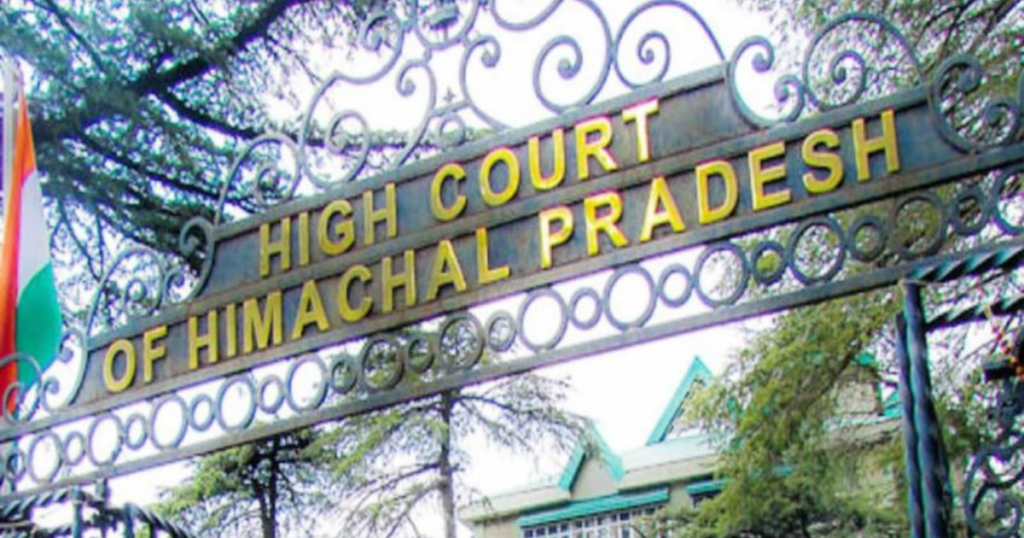
HP High Court slams HPBOSE for denying merit certificate to 99% scorer Yashaswini Aggarwal, orders certificate issue and fines board ₹25,000.
In a landmark judgment that underscores the importance of fairness and accountability in education, the Himachal Pradesh High Court has directed the Himachal Pradesh Board of School Education (HPBOSE) to issue a merit certificate to a student who had been unfairly denied recognition despite her outstanding academic performance. The court also imposed a fine of ₹25,000 on the board, calling its actions “arbitrary” and “unjust.”
The ruling, delivered by Justice Ajay Mohan Goel, not only provided relief to the student but also sent a strong message to education authorities across the country: excellence must be rewarded, not obstructed.
The Student’s Determination: From 98% to 99%
The petitioner, Yashaswini Aggarwal, a Class 10 student, appeared for her board examinations conducted by HPBOSE in March 2024. Initially, she scored 686 out of 700 marks, a remarkable 98%. However, Yashaswini believed her performance was worth more and chose to apply for revaluation.
Her persistence paid off. After the revaluation, her marks rose to 693 — nearly 99% — an achievement that placed her among the top-performing students in the state.
Ordinarily, such a score would automatically qualify a student for a place in the merit list of the top ten performers, making her eligible for both a merit certificate and the prestigious scholarships linked to it. Instead, Yashaswini found herself battling not competitors, but bureaucracy.
Board’s Denial Sparks Dispute
Despite her improved marks, HPBOSE refused to issue the merit certificate, citing a technicality. According to the board, Yashaswini’s school had not submitted the necessary documents within the prescribed timeline, and this procedural lapse meant she could not be considered for the merit list.
This justification was strongly challenged in court. The petitioner argued that the delay was beyond her control and that denying her recognition was deeply unfair.
Court’s Strong Observations
Justice Ajay Mohan Goel came down heavily on the board, making it clear that such excuses cannot override merit. The court stated that conducting examinations, processing results, and issuing certificates are the sole responsibilities of the board. Any lapse in administration cannot be used to penalize hardworking students.
The court’s observations were sharp and empathetic:
- “The petitioner cannot be denied the merit certificate arbitrarily. Meritorious students do not deserve such treatment. Rather than rewarding her excellence, the board forced her to approach the court, which is not appreciated.”
By highlighting the moral and academic damage caused, the court reinforced that recognition is not just a piece of paper — it directly impacts scholarships, career opportunities, and the confidence of students.
Final Directions by the High Court
In its verdict, the court issued three clear directives:
- Issue the Certificate: HPBOSE must immediately issue the merit certificate to Yashaswini Aggarwal.
- Grant Benefits: She must be awarded all benefits linked to her merit rank, including scholarships and academic opportunities.
- Pay Compensation: The board must pay ₹25,000 as costs, acknowledging the unnecessary legal burden and stress caused to the student.
Why This Judgment Matters
This case is not just about one student. It highlights a systemic issue: the rigid bureaucracy of examination boards often ends up punishing those it should reward.
- For students: It reaffirms that their hard work will not be undermined by procedural delays.
- For boards: It is a reminder that administrative lapses cannot overshadow academic achievements.
- For society: It sends a clear message that the judiciary will stand by students when institutions fail them.
Merit certificates, especially in Class 10 and 12, carry immense significance in India. They not only symbolize academic excellence but also open doors to scholarships, special admissions, and recognition at both national and state levels. Denying such recognition could have long-term consequences on a student’s educational and professional journey.
The Larger Picture: Accountability in Education
The ruling also raises larger questions about accountability in India’s education system. While students are expected to meet strict deadlines, boards and institutions often escape scrutiny for their inefficiencies.
By penalizing HPBOSE, the court has set a precedent: education boards must be held to the same standards of responsibility and timeliness as the students they evaluate.
Educational experts argue that this judgment could push boards across India to streamline their processes and avoid rigid bureaucratic practices that harm students. For instance, revaluation results should be seamlessly integrated into merit lists, ensuring no deserving candidate slips through the cracks.
A Victory for Students’ Rights
For Yashaswini Aggarwal, this verdict is more than a legal win — it is validation of her hard work and determination. For thousands of other students, it serves as a beacon of hope that the system, though flawed, can be corrected.
In an era where academic pressure is already immense, the last thing students need is unfair denial of recognition due to administrative negligence. The High Court’s intervention is a reminder that merit must always be honoured, and excellence must never go unrecognized.
Also Read: Ludhiana: Hunar Sikhya Schools push for skill-based education for Class 11
IIM Raipur & TimesPro launch 12-month General Management Programme –